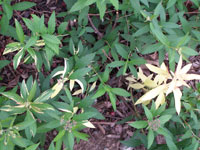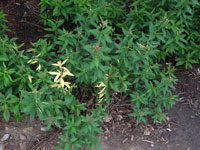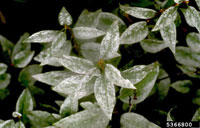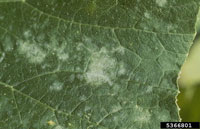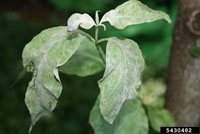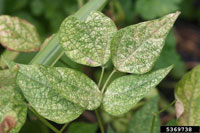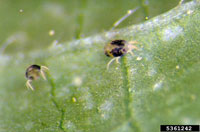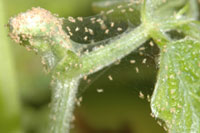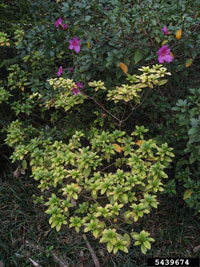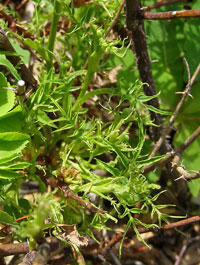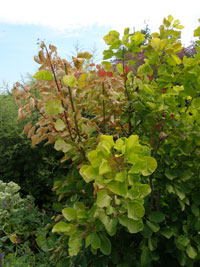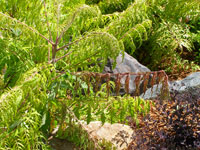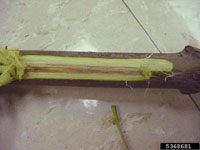Extension > Garden > Diagnose a problem > What's wrong with my plant? > Deciduous > Spirea > Leaves discolored white, yellow or pale green
Spirea > Leaves > Leaves discolored white, yellow or pale green
1 of 5
Chimeras
- Light colored branch or shoot appears on a non-variegated plant
- Show up suddenly on shoots or individual leaves
- Not a sign of nutritional or chemical disorders or virus diseases
2 of 5
Powdery mildew
Podosphaera oxycanthe
- White spots or blotches on leaves
- In severe cases leaves may be completely coated with white powdery fungal growth
- Leaves may be stunted, reddened, scorched and curled or puckered by midseason
- More information on powdery mildew
3 of 5
Two-spotted spider mite
Microsphaeria penicillata
- White to yellow stippling on foliage; leaves can be off-green
- Heavy infestations will cause leaves to turn white, yellow and ultimately grayish bronze; premature leaf drop may occur
- Webbing may be present, especially when heavily infested
- Mites usually appear in late June to August; they are more prevalent in hot, dry weather
- Adult spider mites are small (approximately 1/50 inch long) and are hard to see; they are yellow to dark red with dark spots (need magnification to see)
- More information on two-spotted spider mite
4 of 5
Non-selective herbicide injury
(Round-up, Kleen-up, and other glyphosate products)
- Yellowing, wilting, browning leaves and eventual death of foliage and plants
- Damage usually appears first in new tissues
- Shrubs sprayed during the summer or fall may not have noticeable injury until the following season when leaves appear as stunted, narrow, strap-like, and chlorotic
5 of 5
Verticillium wilt
Verticillium dahliae
- Leaves on one to several branches turn red to yellow, wilt, die and fall off
- Dark olive to gray streaks are often visible in the sapwood if the bark is peeled back
- Symptoms may appear in several branches or in the entire shrub
- Symptoms are often most obvious in late summer and autumn but can occur throughout the growing season
- More information on verticillium wilt



